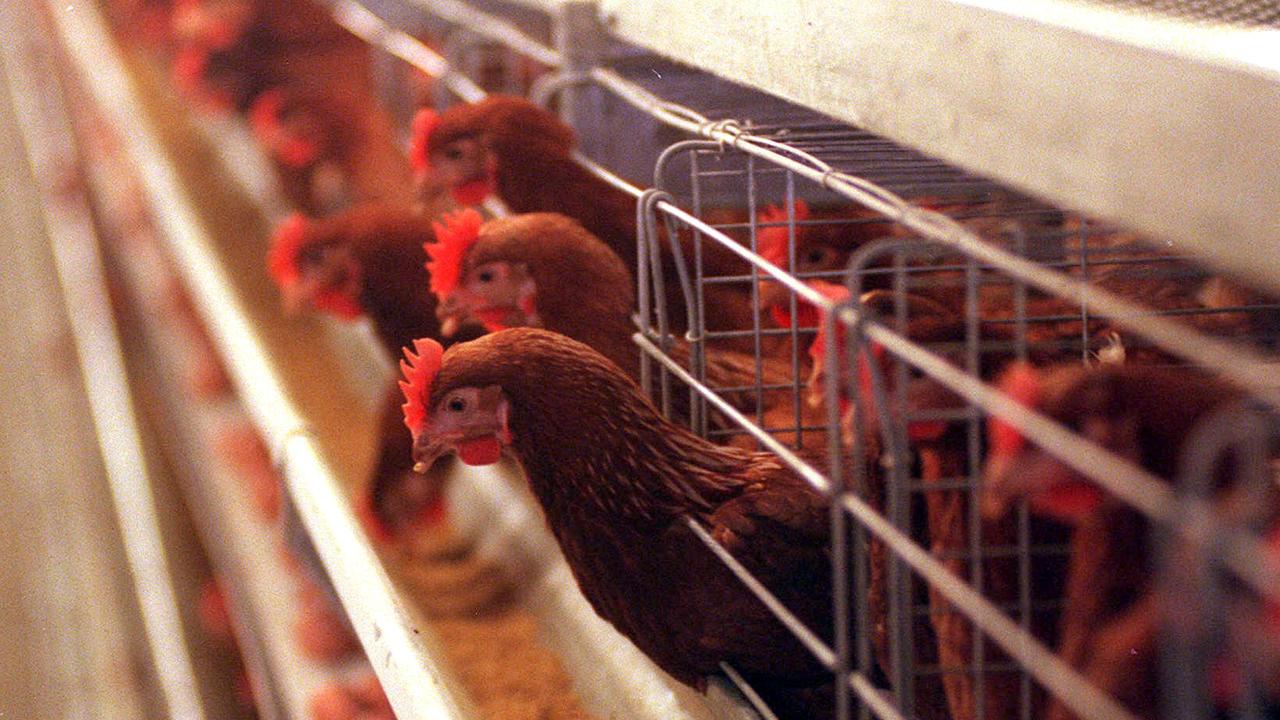Egg producers “in limbo”, uncertainty causing egg shortages
Australian egg producers, already facing the prospect of a caged production phase-out they aren’t prepared for, are assessing a new threat to their industry.
Australian egg producers are “in limbo” waiting for governments to decide the future of caged egg production, while also nervously eyeing a supply squeeze in New Zealand partly caused by a ban on battery-caged hens.
Under new Australian Animal Welfare Standards and Guidelines for Poultry, released last August, a phase out of conventional hen cages is recommended by 2036 with the infrastructure to be replaced with larger, furnished “colony” cages or free-range operations.
State and territory agriculture ministers will meet in coming weeks to discuss whether to accept the standards and guidelines in their jurisdictions, and how the framework would be implemented.
Victorian Farmers Federation egg group president Brian Ahmed has requested an urgent meeting with Victoria’s Agriculture Minister Gayle Tierney to ascertain the re-elected government’s position, with the industry body wanting the continuation of caged egg production.

Mr Ahmed, a caged and free-range egg producer, said the uncertainty had already led to an egg shortage in Victoria.
“Supermarkets have made this decision not to sell caged eggs, so they can’t get the volume (of eggs) they need, because farmers haven’t invested heavily in that sector because they don’t know what the decision is going to be,” Mr Ahmed said.
“There’s this mindset that people don’t buy caged eggs, but families are looking for the most affordable egg and ensure food security.”
A spokesperson said animal welfare was a priority for the Andrews Government and that it “looks forward to discussing opportunities for nationally consistent regulations for poultry through the Agriculture Ministers Forum.”
Federal Agriculture Minister Murray Watt hoped state and territory ministers would agree on nationally consistent regulations for poultry to “provide certainty for industry, allow producers to plan for the future and assure the public we have strong standards of animal welfare”.
Meanwhile, in New Zealand, a total ban on battery cages came into effect on January 1, after a 10-year phased transition.
NZ producers were given the option in 2012 of moving to colony cages, barns and free-range systems, with a third of the 80 per cent of farmers who ran battery systems switching to colony farming.
However, the country’s two major supermarket chains later decided to not take colony-farmed eggs.
Some producers spent millions switching to colony farming, with some blaming the current NZ egg shortage on production uncertainty and frustrated producers exiting the industry.
Agriculture Victoria plans to consult with industry to identify potential implications for the Victorian poultry industry should the proposals be implemented.
The new guidelines also cover chickens, ducks, pigeons and emus. Around 167,000 public submissions were lodged during the consultation period.





